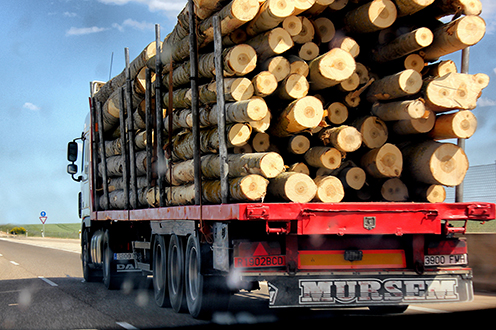Coronavirus COVID-19
Ministry of Transport, Mobility and Urban Agenda makes driving and rest times more flexible to facilitate work of professional hauliers
News - 2020.4.15
In this case, since the total 30-day period of flexibility has now been exceeded, the regulatory authorisation of the European Commission has been applied for in compliance with its guidelines.
This new resolution applies throughout the country from 13 April to 31 May. The exemptions approved are the following:
A) For drivers that perform goods transport operations:
- Exceptions are applied to limits on daily driving times, allowing the duration of each driving period to be increased by two hours; in other words the limits on nine hours and 10 hours twice a week are suspended.
- The possibility exists to take two consecutive reduced weekly breaks of at least 24 hours without the need for this to be offset provided that the driver has at least four periods of weekly breaks in four consecutive weeks, of which at least two must be normal periods of weekly breaks.
- To reduce the daily rest requirements of 11 hours to nine hours.
- The driver is allowed to take his normal weekly rest in the vehicle, provided the vehicle is adequately equipped for each of the drivers to rest and remains parked up.
B) For occasional transport drivers of passenger vehicles that undertake their activity in the agricultural sector, the exception applies on their daily rest period, reducing it from 11 to nine hours when the journey is no longer than 50 kilometres within the country.
Essential work of transport sector in response to COVID-19
Following the declaration of the state of emergency throughout the country, in order to tackle the health crisis caused by COVID-19, the goods transport sector has become vitally important, carrying out essential work every day to guarantee the supply of food to the public and of our productive system in general.
In this context, and following the extension of the state of emergency, it has become necessary to persist with flexible work conditions for drivers, facilitating transport while reducing the risk to their health.
In addition, the reduction in the occupancy of passenger transport vehicles to one third of their normal capacity to try and maintain the maximum distance possible between people has made the deployment of workers in the agricultural sector more difficult, with the consequent potential effect on the collection of crops and the subsequent supply of basic food products.
Non official translation





